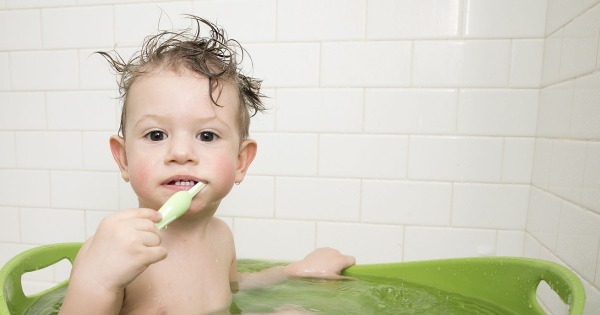
Have you talked with your kids lately about their oral health? It’s a topic that’s easy to overlook. We often don’t think about how important our oral health is, let alone have the conversation with someone else. However, talking with your kids about their oral health is something you should do fairly regularly. Here are some ways you can encourage your children to care for their oral health.
Establish Rewards
If your kids are young, this is a great way to encourage positive behavior like flossing, brushing your teeth, and going to the dentist. For young kids, the dentist can be really scary. However, the dentist will seem a lot less scary if they know they’re going to the movie theatre afterward. It’s important for people of all ages to get regular dental checkups every six months and providing a reward for going to the dentist can be a great way to encourage your kids to do this even into adulthood.
The rewards will ultimately vary depending on your child or yourself. What incentive will they need to do the work? You’ll want the reward to be equivalent to the work that needs to be done. For brushing their teeth each morning and night, perhaps a favorite snack could be the reward. If your child is really scared of the dentist but needs to go in for a regular check-up, perhaps a bigger reward is necessary.
Promote a Better Self-Image
For many of those wearing braces, the reasoning behind it is because they aren’t happy with how their teeth look. Aesthetics play a major role in dental work. Of the 4 million people in the United States that are wearing braces, 75% of them are younger than 18, likely as a result of being self-conscious.
One way you can help your child have a better self-image is by allowing them to change the things that can be changed. If having a nicer smile is what will help them to feel more confident and you have the means, then why not? About 47% of Invisalign Teen users surveyed had a boost of self-esteem in the process of treatment as did 22% of teens with metal braces.
This incentive is similar for encouraging regular flossing and brushing. If your children prefer white, sparkly teeth rather than stained, yellow teeth, they’re going to want to brush their teeth twice a day as dentists recommend. They’ll also want to floss to help make sure nothing is left behind.
Keep in mind that a consequence-based strategy may work better for older kids. Be sure not to give your child any more self-doubt than they may grow to have anyways. While it’s true that if you don’t brush your teeth they’ll start to look bad and cause damage to your health, this type of approach may not work well for everyone and can end up being more damaging to their self-esteem.
While the most obvious reason to encourage oral health is the benefits (and potential dangers) to your overall health, sometimes that’s too abstract. These are two solid ways that can help your kids feel more inclined to care for their oral health on their own.

Speak Your Mind